|
Dear Colleagues,
I am pleased to include another issue of RFS Briefings with some timely and encouraging updates on women in science.
In particular, please note the announcement for 2023 Vilcek Prizes for Creative Promise in Biomedical Science:
The Vilcek Foundation will award three Creative Promise Prizes of $50,000 each to young, immigrant biomedical scientists who demonstrate outstanding early achievement. Applications are open through June 10, 2022. Read more.
Please continue to share important news and opportunities with us so that we may share it with you, and others who are committed to supporting the careers of exceptional women in science.
Stay safe and sound,

Karla Shepard Rubinger
Executive Director
Rosalind Franklin Society
www.rosalindfranklinsociety.org

Five trailblazing women scientists at The Rockefeller University.
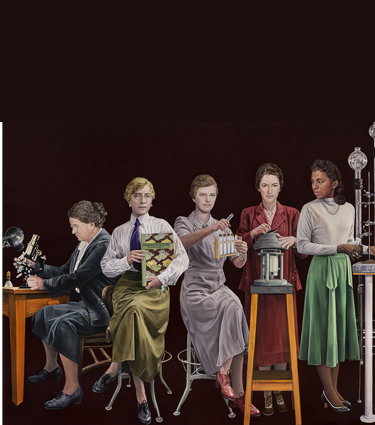
“Five Trailblazing Women Scientists at The Rockefeller University”
Florence R. Sabin, Louise Pearce, Rebecca C Lancefield, Gertrude E Perlmann, and Marie M. Daly.
Brenda Zlamany, 81 x 100 1/4 inches, oil on canvas, 2021
In 2019, the University’s Women & Science Initiative and Women in Science at Rockefeller came together in what is now called the Women & Science Portrait Initiative. The purpose of this partnership was to commission the portrait of an historic woman scientist from Rockefeller. It now hangs in Abby Aldrich Rockefeller Lounge. Rockefeller University is an important member of our Council of Academic Institutions. Read more.
At 90, still studying ancient pollen.
Linda Heusser turned 90 years old on April 12, and the only birthday present she really wanted was another sediment core to study. The adjunct researcher at Columbia University’s Lamont-Doherty Earth Observatory analyzes pollen from marine sediments in order to better understand climate trends going back as far as 2.3 million years. She has worked at Lamont on and off for decades. Read more.
Nominate a 2022 STAT Wunderkind.
STAT Wunderkinds is a chance to celebrate early-career researchers who are not yet independent scientists or program leaders. STAT wants to honor postdocs, interns, fellows — people who have terminal degrees in hand, but aren’t running their own research programs yet. Entries are due by July 29, 2022. Read more.
Diverse perspectives empower creative solutions.
Awarded annually, the Vilcek Prizes honor outstanding immigrant professionals in the arts and sciences, and recognize leaders who are champions of immigrant causes. Meet the 2022 Vilcek Foundation Prize winners in the online celebration. Read more.
Kizzmekia Corbett on the pandemic, public service, and her path to becoming a scientist.
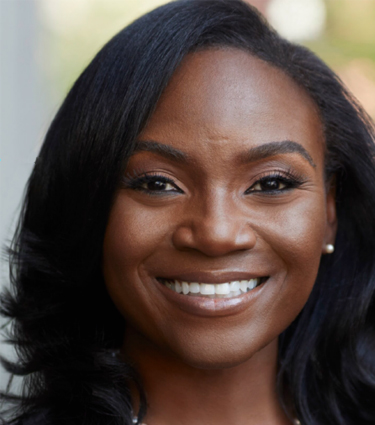
The world knows Kizzmekia Corbett as one of the designers of the Moderna Covid-19 vaccines. And in her new job as an assistant professor at Harvard’s T.H. Chan School of Public Health, Corbett plans to work on vaccine design to help the world better handle future pandemics. She was recently named to the inaugural STATUS List, which recognizes standout individuals in health, medicine, and science. Read more.
Why women scientists are rallying around six-year-old bug and frog lover Lyra.
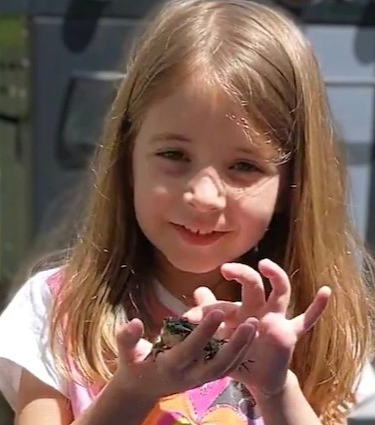
After receiving a heartbreaking email, Dr. Ann Jones goes on a mission to prove that 'girls DO like spiders' on this week's What the Duck podcast. Dr. Jones contacted women scientists around the world to share their stories about their love of bugs, frogs and spiders, and how they broke through barriers and carved out successful careers in science. Photo by Julie Cann. Read more.
Academic medicine’s glass ceiling: Author’s gender in top three medical research journals impacts probability of future publication success.
Women scientists have historically been underrepresented as authors in top medical research journals. Through increased awareness and calls to action, this is changing, but inequality persists. This study demonstrates that not only are women underrepresented as first, second, and last authors in high-impact journals, there is significant variation in the representation of women scientists amongst these journals. Read more.
Ursula Bellugi, pioneer in the world of sign language, dies at 91.
Ursula Bellugi, a researcher at the Salk Institute for Biological Studies, made strides in understanding the brain and the origins of language, both spoken and signed. She was among the first to demonstrate that sign language was just as complex, abstract and systematic as spoken language. She died on Sunday in San Diego. She was 91. Read more.
NASA astronaut Jessica Watkins celebrates ‘milestone’ for diversity in space industry.
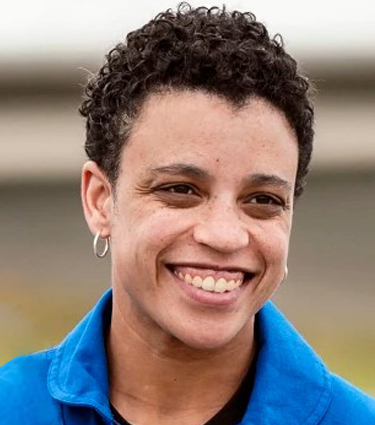
NASA astronaut Jessica Watkins joined a small yet groundbreaking list as she became the fifth Black woman to go to space and the first Black woman to serve aboard the International Space Station. Watkins’ mission has drawn praise from diversity and inclusion experts, but it shows just how far Black women still have to go in the white, male-dominated profession. Read more.
The scientist who co-created CRISPR isn’t ruling out engineered babies someday.
Jennifer Doudna is the co-discoverer of CRISPR editing, the revolutionary method for engineering genes. In 2020, she shared a Nobel Prize with fellow scientist Emmanuelle Charpentier. The two became the sixth and seventh women to win the award in chemistry. Antonio Regalado recently spoke to Doudna about the formidable power of versatile gene editing as well as the possible downsides of the technology. Read more.
Girls shun physics A-level as they dislike ‘hard maths’, says social mobility head.
Girls do not choose physics A-level because they dislike “hard maths”, the UK government’s social mobility commissioner has claimed, prompting anger from leading scientists. Dr Jess Wade, a physicist at Imperial College London who campaigns for equality in science, said: “I honestly can’t believe we’re still having this conversation. It’s patronizing, it’s infuriating, and it’s closing doors to exciting careers in physics and engineering for generations of young women.” Read more.
How Paxlovid came to be: From the germ of an idea to a vital tool against Covid.
The story of Paxlovid is a reminder that the path from a biological idea to a useable medicine depends on thousands of decisions, any of which can result in the medicine not making it. Read more.
Early Ukrainian Women Scientists.
These early Ukrainian women scientists, all born in the 19th century, came from 5 different physical and natural sciences, studying fossils, the human body, space, and mathematics. Each bio begins with a very short summary, so you can scroll through the pictures and summaries to get a quick impression of their lives and achievements. Read more.
Backlash erupts as N.Y.U. weighs hiring scientist accused of harassment.
Graduate students, faculty and alumni from New York University’s Grossman School of Medicine staged a walkout Wednesday to protest a report that the school may soon hire Dr. David Sabatini, a biologist facing allegations of sexual harassment. Read more.
Diversifying Stem Cell Biobanks: Towards Inclusive Precision Medicine and Health Equity.
Increasing the diversity of stem cell biobanks presents a key opportunity to ensure that disease research captures the full diversity of humanity and benefits all communities in need. Hear from experts Ru Gunawardane, PhD, Ekemini A. U. Riley, PhD, John Greally, PhD, DMed, and Scott Noggle, PhD as they explore this opportunity and call the stem cell community to action. Read more.
Marianna Limas, Social Media Manager
Nilda Rivera, Partnership and Events Manager
|
|
|
Dear Colleagues,
I am pleased to include another issue of RFS Briefings with some timely and encouraging updates on women in science.
Please continue to share important news and opportunities with us so that we may share it with you, and others who are committed to supporting the careers of exceptional women in science.
Stay safe and sound,
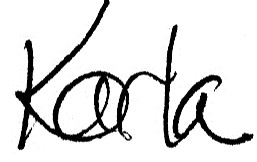
Karla Shepard Rubinger
Executive Director
Rosalind Franklin Society
www.rosalindfranklinsociety.org

Princeton Alumni Weekly’s April issue is now online.

The Princeton Alumni Weekly’s April issue is now online, featuring stories about Alice Zhang’s new approach to discovering essential new drugs at Verge Genomics. Read more. Alice Zhang was an RFS speaker, check out the video here.Photograph by Carolyn Fong.
HHS Endocrine-Disrupting Chemicals (EDC) Innovator Award Competition.
Exposure to Endocrine Disrupting Chemicals or EDCs has been associated with several reproductive health disorders in women. If you have an innovative idea to raise awareness about the health effects of endocrine-disrupting chemicals (EDCs), apply today for the HHS Office on Women’s Health Endocrine-Disrupting Chemicals (EDC) Innovator Award Competition. Read more.
Woman to Woman Scientist: Advice for Early-Career Scientists.
Community is critical to the success of early-career women scientists, and there is no better resource than the women scientists who have come before them. At this year’s Kuggie Vallee Distinguished Lecture, featured speaker Eva Nogales of the University of California, Berkeley, and Johns Hopkins University School of Medicine faculty members shared guidance on navigating postdoc positions, the junior faculty years, becoming a principal investigator and more. Read more.
Penn State to name building in honor of scientist and pioneer Shirley M. Malcom.
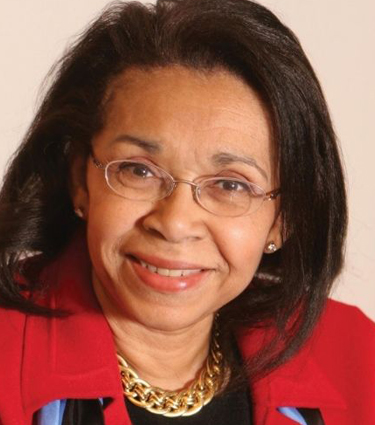
Penn State will honor scientist and advocate Shirley M. Malcom, whose pioneering work has helped open doors for women of color in the sciences, by naming a building at Innovation Park in her honor on April 8, 2022. The 329 Building at Innovation Park will be renamed “The Shirley M. Malcom Building” in honor of Malcom, who earned her doctorate in ecology from Penn State in 1974. Read more.
New Editors-in-Chief Announced for ASM’s Journal of Virology.
ASM announced the incoming co-Editors-in-Chief (EiCs), Felicia Goodrum, Ph.D. and Stacey Schultz-Cherry, Ph.D., to the Journal of Virology (JVI) beginning July 1, 2022. “In addition to their leadership experience within ASM, they are both engaged with the American Society for Virology, which will strengthen the partnership between the two organizations,” said Dr. Patrick Schloss, chair of the ASM Journals Committee. Read more.
Meet the Paul & Daisy Soros Fellows.
The 2022 Class of Paul & Daisy Soros Fellows is made up of 30 outstanding immigrants and children of immigrants from all over the country and world who are pursuing graduate school here in the United States. Selected from more than 1,800 applicants, each of the recipients (including 8 impressive women in science) was chosen for their potential to make significant contributions to the United States and will receive up to $90,000 in funding over two years. Read more.
10 Women Scientists Leading the Fight Against the Climate Crisis.
Climate change is an issue that affects everyone on the planet but women and girls are the ones suffering its effects the most. Why? Because women and girls have less access to quality education and later, job opportunities. Climate change also leads to geopolitical instability which, in turn, results in greater instances of violence — which we know disproportionately impacts women and girls. Read more.
A conversation with climate scientist Dr. Kate Marvel.
In this article, Amber Liggett interviews climate scientist Dr. Kate Marvel. Kate is a Research Scientist at the NASA Goddard Institute for Space Studies and the Columbia Center for Climate Systems Research. Kate is a well-known science writer and storyteller based in New York City. Read more.
2022 Lurie Prize in Biomedical Sciences winners are Anne Brunet, Ph.D., and Andrew Dillin, Ph.D.

Dr. Anne Brunet, the Michele and Timothy Barakett Professor of Genetics at Stanford University, has received the Lurie Prize in Biomedical Sciences. She has employed a unique multi-organismal approach to investigate the ability of enzymes to regulate genes implicated in aging and has identified genes and pathways critical for maintaining neural stem cells that may help preserve brain function during aging. Read more.
Marianna Limas, Social Media Manager
Nilda Rivera, Partnership and Events Manager
|
|
Dear Colleagues,
I am pleased to include another issue of RFS Briefings with some timely and encouraging updates on women in science.
Please continue to share important news and opportunities with us so that we may share it with you, and others who are committed to supporting the careers of exceptional women in science.
Stay safe and sound,

Karla Shepard Rubinger
Executive Director
Rosalind Franklin Society
www.rosalindfranklinsociety.org

Katalin Karikó: The sacrifices and successes of immigrant scientists.
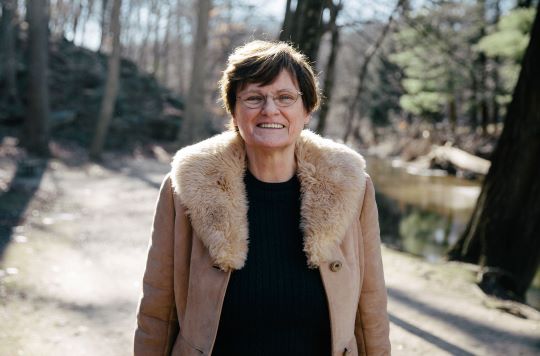
Hungarian-born biochemist Katalin Karikó receives the 2022 Vilcek Prize for Excellence in Biotechnology for her scientific leadership. The award is bestowed on Karikó for her pioneering research into the development of mRNA therapeutics, including the development of mRNA vaccines for COVID-19. Read more. Katalin Karikó was also a featured speaker at our GEN/RFS Women in Science Series. You can access the presentation here.
A Conversation with Janice Chen.
Janice Chen is very inspiring. At the age of 30, she has not only completed a PhD. with recent Nobel prize winner Jennifer Doudna at the University of California, Berkeley, but co-founded Mammoth Biosciences together, where she serves as its CTO. She recently spoke about her inspirations, challenges she has overcome, and her hopes and plans for Mammoth and CRISPR gene editing in the future. She also spoke at our recent virtual RFS conference. Read more.
Two Sloan Kettering Institute researchers named 2022 Kravis Women in Science Endeavor (WiSE) Fellowship grant recipients.
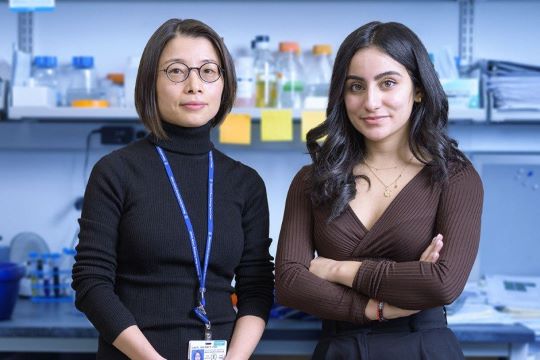
Memorial Sloan Kettering Cancer Center (MSK) announced that two Sloan Kettering Institute (SKI) researchers have been named 2022 Marie-Josée Kravis Women in Science Endeavor (Kravis WiSE) fellowship grant recipients. “This year’s symposium, featuring these stellar researchers and extraordinary speakers, highlights how critical it is that the scientific and medical communities expand opportunities for women at all levels and in all endeavors. We all benefit when we are all welcomed to the table,” said Ushma Neill, PhD, Vice President, Scientific Education and Training. Read more.
The queen of crime-solving.
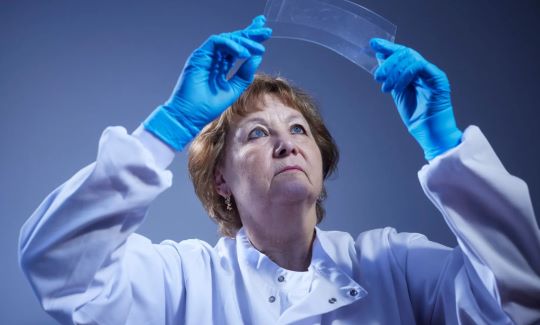
Forensic scientist Angela Gallop has helped to crack many of the UK’s most notorious murder cases. But today she fears the whole field – and justice itself – is at risk. Over almost 50 years as a forensic scientist, Gallop has seen enough grisly cases to fill several lifetimes. Name a famous crime that took place in Britain since the 1980s and there is a good chance that Gallop was involved in the investigation. Read more. Photo: David Levene, The Guardian.
Holberg winner Jasanoff pioneered study of interplay between those fields, societal influences, biases, law.
Sheila Jasanoff, the Pforzheimer Professor of Science and Technology at HKS, has been awarded the 2022 Holberg Prize for her pioneering role in Science and Technology Studies (STS). The award, funded by the Norwegian government and administered by the University of Bergen, is given out annually to a scholar who has made major contributions to the humanities, social sciences, law, and theology. Read more.
‘We are turning a corner.’ Acting White House science director moves to calm troubled office.
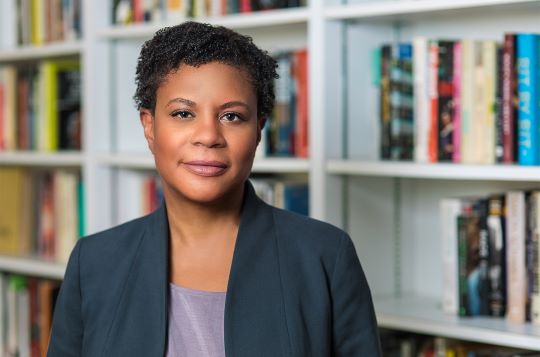
In her first interview since being promoted from deputy director for science and society, Alondra Nelson spoke with ScienceInsider about a wide range of issues, including the recently enacted 2022 federal spending bill, President Joe Biden’s ambitious science agenda, and the division of labor between her and Francis Collins, the recently retired director of the National Institutes of Health (NIH) who is now serving as the president’s science adviser. Read more. Photo: Dan Komoda, Science.
Apply now for the Science & SciLifeLab Prize for Young Scientists, an annual prize awarded to early-career scientists.
As a winner, you will have your essay published by Science, receive up to 30,000 USD and be invited to Sweden where you receive your award, present your research and meet with leading scientists in your field. The award banquet is held in the Hall of Mirrors at Grand Hôtel, the original venue of the Nobel Prize. Read more.
Women are creating a new culture for astronomy.
In 1999 women were about 16 percent of the assistant and associate professors of astronomy; in 2013 they were around 22 percent. In 1999 women were 7 percent of the full professors; in 2013 they were 14 percent. These changes in numbers, Meg Urry says, drove changes in policy and practice. Read more.
A STEM-focused addition to the #1 New York Times bestselling She Persisted series.
Throughout history, women have been told that science isn't for them. They've been told that they're not smart enough, or that their brains just aren't able to handle it. In this book, Chelsea Clinton introduces readers to women scientists who didn't listen to those who told them "no" and who used their smarts, their skills and their persistence to discover, invent, create and explain. Read more.
The Eppendorf & Science Prize for Neurobiology acknowledges the increasingly active and important role of neurobiology.
The winner of the Eppendorf & Science Prize for Neurobiology is awarded US$25,000 and publication of his or her essay in Science. The essay and those of up to three finalists are also published on Science Online. The award is announced and presented at a ceremony at the annual meeting of the Society for Neuroscience. Eppendorf provides financial support to help enable the grand prize winner to attend the meeting. Read more.
When women – and Jews – were forced out of sciences, this Nazi-era pioneer persisted.
Gertrude Goldhaber fled the Holocaust to become a renowned US researcher and women’s rights activist. Her son is gifting a treasure trove of documents to NYC’s Leo Baeck Institute. Read more.
Markita del Carpio Landry: Representation and responsibility in STEM.
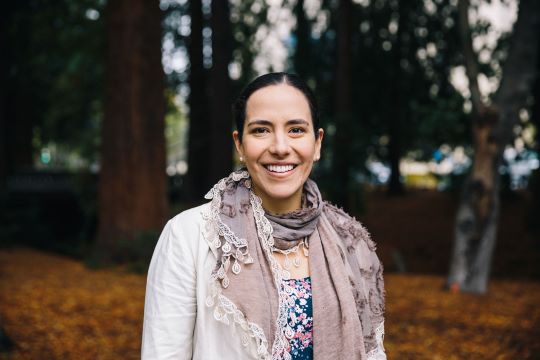
A nanobiotechnologist and an assistant professor at the University of California, Berkeley, Markita del Carpio Landry grew up in Quebec, Canada, in a multicultural household helmed by her Bolivian mother and French Canadian father. As a young, Latina professor, del Carpio Landry is also critically aware of how important diversity and representation are in science. She is passionate about her role as a mentor, and her ability to have a positive influence on the next generation of scientists. Read more.
Anne Beaumanoir, activist and clinical neurologist, dies at 98.
Anne Beaumanoir, a French resistance fighter who aided Jewish people fleeing the Nazi occupation of France during World War II and later became a groundbreaking clinical neurologist and epilepsy researcher, died in her home in Quimper on March 4 at the age of 98. Read more.
Bigelow impact report.
From phytoplankton in sunlight surface waters to microbes in darkness beneath the seafloor, Bigelow Lab scientists work to make discoveries and create solutions. Here's a snapshot of some of the ways their bold ocean science has made an impact. Bigelow Labs, led by Deb Bronk, is an important member of the RFS Council of Academic Institutions. Great work in ocean science!
Adriana Hoffmann, botanist who fought for Chile’s forests, dies at 82.
Adriana Hoffmann, a botanist who roamed Chile deciphering its flora and who as a scientist, activist, author and policymaker tirelessly sought to protect her country’s vast forests from big-business exploitation, died on March 20. Read more.
Celebrating women breaking barriers in STEM.
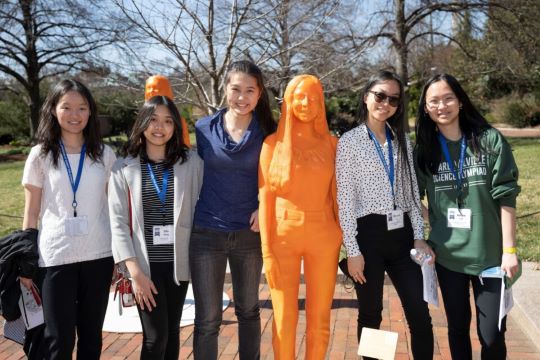
Five 2022 Science Talent Search Finalists pose with a statue of a Society for Science competition alumna, as part of the Smithsonian's If/Then She Can exhibit. Courtesy of Society for Science. Read more.
Marianna Limas, Social Media Manager
Nilda Rivera, Partnership and Events Manager
|
|
Dear Colleagues,
In recognition of Women’s History Month, we are excited to feature a new initiative highlighting women in science: Lost Women of Science. It’s mission is to raise awareness of the pivotal role women have played in scientific discoveries and innovations, and to promote interest in STEM education and careers.
The founders, Katie Hafner and Amy Scharf, bring incredible experience, substance and curiosity. Katie is an accomplished writer, healthcare and technology reporter for the New York Times, and an Executive Producer for the new podcast series. Amy is a bioethicist at Memorial Sloan Kettering Cancer Center, also an Executive Producer for Lost Women of Science.
“For every Rosalind Franklin, Hedy Lamar, or Katherine Johnson whose story has been told, there are dozens more whose stories remail untold to the public at large, or even to contemporaries in their field…We believe it is imperative -now more than ever- to tell the stories of women who have shifted our understanding of the world around us but have been lost to history.”
Learn more about Lost Women of Science from the founders as they are interviewed by Julianna LeMieux, senior science writer at Genetic Engineering & Biotechnology News. Available here.
Please continue to share important news and opportunities with us so that we may share it with you, and others who are committed to supporting the careers of exceptional women in science.
Stay safe and sound,

Karla Shepard Rubinger
Executive Director
Rosalind Franklin Society
www.rosalindfranklinsociety.org

A blossoming interest in STEM? These spots will inspire a love of science.
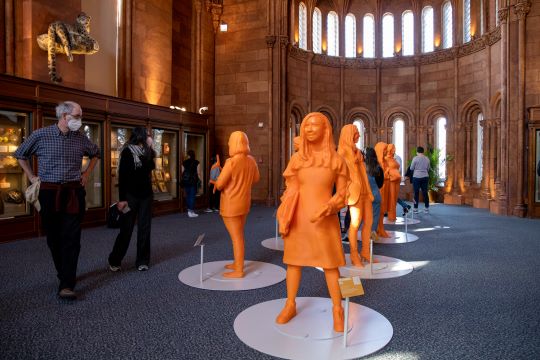
“#IfThenSheCan — the Exhibit” features 120 life-size statues of leading women in STEM around the National Mall as the centerpiece of Women’s Futures Month. The Smithsonian calls it “the largest collection of statues of women ever assembled together.” The Washington Post wondered where these women had been inspired to pursue a career in science — especially the ones who grew up in the D.C. area — and asked those who have lived and worked here if they’d tell them about their favorite STEM-related museums or places. Read more. Photo by Amanda Andrade-Rhoades for The Washington Post.
Women’s history month: 5 groundbreaking researchers who mapped the ocean floor, tested atomic theories, vanquished malaria and more.
Here are five profiles from The Conversation’s archive that highlight the brilliance, grit and unique perspectives of five women who worked in geosciences, math, ornithology, pharmacology and physics during the 20th century. Read more.
Cecilia Payne-Gaposchkin: the woman who found hydrogen in the stars.
In this piece for Physics World, Sidney Perkowitz delves into the work and life of Cecilia Payne-Gaposchkin, from her stellar astronomical findings to a career-long struggle with bias against women in the early 20th century. Read more.
Want to promote diversity in science? Offer better support.
“Growing up in Patna, India, I imagined that there would be a better representation of women in physics in the United States. But after arriving at the University of California, Santa Barbara, to begin my graduate studies in 1988, I was sorely disappointed to learn that I was the only woman in a class of 36 PhD students,” writes Chandralekha Singh in a piece for Nature. Read more.
Using science and celtic wisdom to save trees (and souls).
At a hale 77, Diana Beresford-Kroeger is a medical biochemist, botanist, organic chemist, poet, author and developer of artificial blood. But her main focus for decades now has been to telegraph to the world, in prose that is scientifically exacting yet startlingly affecting, the wondrous capabilities of trees, writes Cara Buckley for The New York Times. Read more.
Gender equality will enhance research around the world.
Addressing diversity in a range of contexts benefits everyone in tangible ways, and scientists’ perspectives can help to address complex, real-world problems. For example, a better understanding of sex-based differences in immunity is helping to advance cancer immunotherapies. Read more.
Why are female scientists wearing purple? #DressForSTEM!
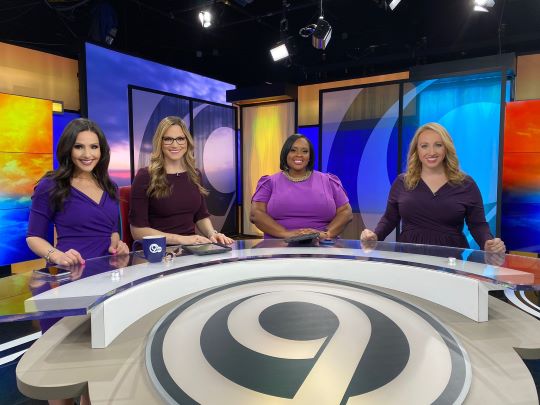
Now in its seventh year, the annual “Dress For STEM” event encourages women in science, and anyone else who would like to join in solidarity, to wear purple to celebrate female STEM pioneers, those active in the field and encourage the next generation of female scientists. Read more. Image: Meteorologist and journalists (Ashley Cafaro, Nicole Sommavilla, Iris St. Meran and Kate Thornton) at NewsChannel 9 in Syracuse, N.Y., wear purple for #DressforSTEM on Monday. (Courtesy of Nicole Sommavilla for The Washington Post)
Using data science to uncover the work of women in science.
"We know from interviews and writings that some women didn't think that their papers were notable enough to save and share with archives," says Dr. Elizabeth Harmon, a digital curator at Smithsonian Libraries and Archives. "Additionally, historians have argued for decades now that women's records are harder to find in historical collections because museums, libraries, and archives have been slower to collect records about women. And when they do, information about women is often scattered across various collections or hidden behind the work and records of male colleagues and relations." Read more.
Start-ups create career opportunities for scientists.
Chief science officers in industry used to fit a predictable profile: middle-aged, male and battle-hardened from many years at the bench. But the template is changing: scientific start-ups are now creating opportunities for a much wider range of researchers around the world, writes Chris Woolston in a piece for Nature. Read more.
How the ‘First Lady of Seaweed’ changed science.
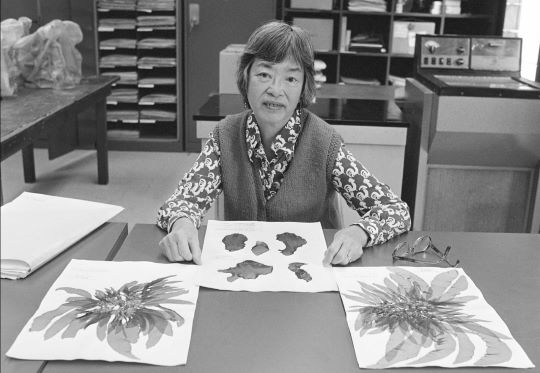
Isabella Abbott was a prolific researcher who changed our understanding of seaweed and discovered hundreds of new species. Image: Chuck Painter/Courtesy Hopkins Marine Center/Atlas Obscura Read more.
Queen of carbon, champion of women in science.
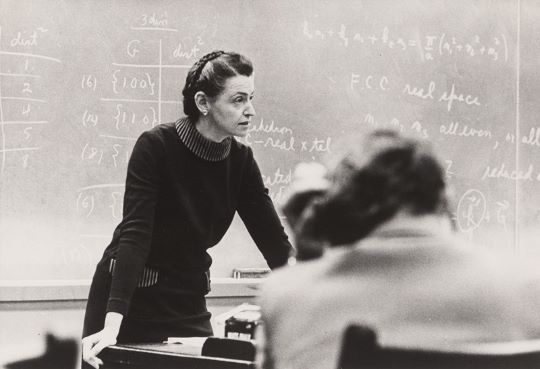
Mildred Dresselhaus’ trailblazing research into the fundamental physics of materials such as graphite and carbon nanotubes in the second half of the twentieth century, and her advocacy of equality in science, saw her dubbed queen of carbon. Read more. Professor Dresselhaus was a true legend and we were honored to have her speak at our 2012 RFS Board meeting. Image: Mildred Dresselhaus lecturing at the Massachusetts Institute of Technology in Cambridge.Credit: MIT Museum.
The Lasker Foundation 2022 Essay Contest Is Now Open!
The Lasker Essay Contest engages early career scientists and clinicians from the US and around the globe in a discussion about big questions in biology and medicine and the role of biomedical research in our society today. The Contest aims to build skills in communicating important medical and scientific issues to broad audiences. Deadline March 30, 2pm EDT. Read more.
The 30-year-old female founder at the forefront of a billion-dollar bet on CRISPR gene editing.
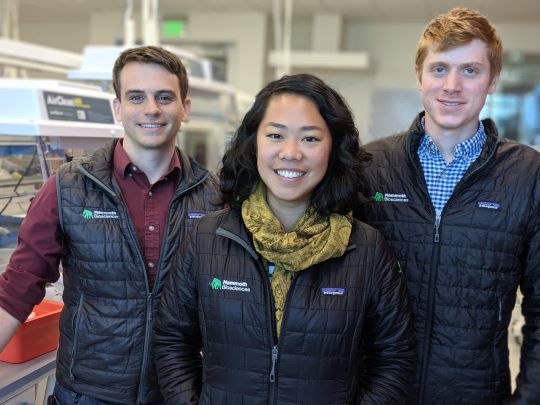
While not high profile like her gold medal-winning, ice skating brother — or Mammoth co-founder Jennifer Doudna, who won a Nobel Prize in chemistry for her work on CRISPR — Janice Chen’s bioscience work in gene editing technology is in the forefront of medical discoveries from identifying bacterial and viral infections to early cancer detection. Read more.
The 2022 SDG Gender Index sounds the alarm on global progress towards gender equality and unveils a blueprint for change.
The 2022 SDG Gender Index finds little progress on gender equality at the global level between 2015 and 2020. If current trends continue, the global score will reach only 71 out of 100 by 2030, the deadline for the achievement of the SDGs. And even this projection could be seen as optimistic, given the impact the COVID-19 pandemic has already had on the well-being of girls and women worldwide. Read more.
How Oni and Uché Blackstock, doctors, spend their Sundays.
Oni and Uché Blackstock, 44, are twin sisters and Harvard-educated doctors who have been on the front lines of the pandemic. Both run businesses that address racial inequity in health care. And both are divorced parents of sons. Read their story here.
She Persisted in Science: Brilliant Women Who Made a Difference.
In this book, Chelsea Clinton introduces readers to women scientists who didn't listen to those who told them "no" and who used their smarts, their skills and their persistence to discover, invent, create and explain. Read more.
Barrie R. Cassileth, who transformed cancer care, dies at 83.
Barrie R. Cassileth, whose efforts to bring treatments like acupuncture and massage into mainstream cancer care helped countless patients weather the pain of chemotherapy, radiation and terminal illness, died on Feb. 26 at an assisted-living home in Beverly Hills, Calif. She was 83. Read more.
Marianna Limas, Social Media Manager
Nilda Rivera, Partnership and Events Manager
|
|
Dear Colleagues,
In recognition of Women’s History Month, we are excited to feature a new initiative highlighting women in science: Lost Women of Science. It’s mission is to raise awareness of the pivotal role women have played in scientific discoveries and innovations, and to promote interest in STEM education and careers.
The founders, Katie Hafner and Amy Scharf, bring incredible experience, substance and curiosity. Katie is an accomplished writer, healthcare and technology reporter for the New York Times, and an Executive Producer for the new podcast series. Amy is a bioethicist at Memorial Sloan Kettering Cancer Center, also an Executive Producer for Lost Women of Science.
“For every Rosalind Franklin, Hedy Lamar, or Katherine Johnson whose story has been told, there are dozens more whose stories remain untold to the public at large, or even to contemporaries in their field…We believe it is imperative -now more than ever- to tell the stories of women who have shifted our understanding of the world around us but have been lost to history.”
Learn more about Lost Women of Science from the founders as they are interviewed by Julianna LeMieux, senior science writer at Genetic Engineering & Biotechnology News. Available here.
Please continue to share important news and opportunities with us so that we may share it with you, and others who are committed to supporting the careers of exceptional women in science.
Stay safe and sound,

Karla Shepard Rubinger
Executive Director
Rosalind Franklin Society
www.rosalindfranklinsociety.org

2022 Trailblazer Prize for Clinician-Scientists by The Foundation for the National Institutes of Health.
The Foundation for the National Institutes of Health invites your nomination for the 2022 Trailblazer Prize for Clinician-Scientists! This prize recognizes the contributions of early career clinician-scientists whose work has the potential to innovate or has led to innovations in patient care. Read more.
Girls need more moms as STEM role models.
“Seeing my mother’s hard work and success as a physician, I dreamed of being an engineer when I was in high school. I was inspired by the success of my family members who are well-recognized and decorated for their research in the field of medicine,” writes Bhuvan Mittal. Read more.
How supposedly scientific arguments for the inferiority of women support gender discrimination.
Throughout the history of science, well-established theories supposedly explained why women are inferior to men and thus why it is justifiable to exclude them from activities that are traditionally regarded as masculine, including scientific practice itself, writes Vanessa Seifert, a researcher in the philosophy of chemistry. Read more.
How ‘Spam’ helped women in STEM to top Colombian Twitter for days.
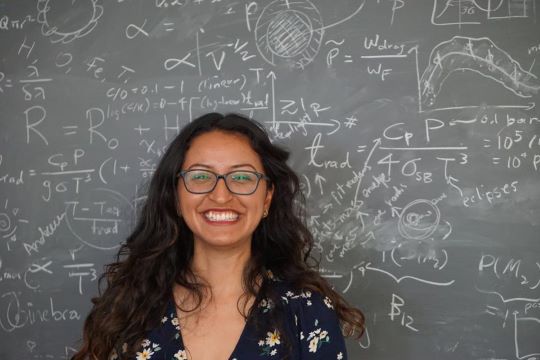
Andrea Guzman-Mesa, a PhD candidate in Astrophysics at the University of Bern, Switzerland, wanted to use a hashtag for a good cause: overflow Twitter with female Colombian scientists and their contributions to science as a celebration of the UN International Day of Girls and Women in Science." Over the course of three days, that's what happened: women in STEM from the Colombian academic diaspora all over the world, Colombians based inside the country and other Latin American scientists all posted photos of themselves and their work, in fields from astronomy to biodiversity to geology. Read more.
Female scientists in Africa are changing the face of their continent.
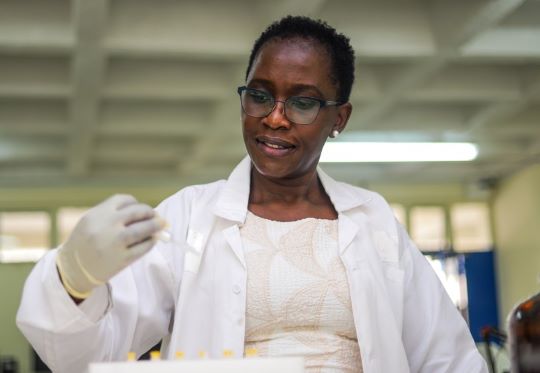
Female scientists in Africa are entrepreneurial and resourceful. They are finding innovative solutions to problems that affect their communities, and many are actively seeking to engage others in their work. For example, Chemist Veronica Okello (pictured above) at Machakos University in Kenya is urging younger researchers to be less timid, air their views and approach professors for professional opportunities. Image Credit: Esther Sweeney for Nature. Read more.
Mikaela Shiffrin stumbled. What happens next matters more.
Olympics 2022 may be over, but the lessons we can learn from it aren’t going away. Thanks Sian Beilock President of Bernard College in N.Y., for reminding us to be kind to ourselves. “…remember to play your whole movie — not just the clip of your latest stumble on repeat.” Read more.
How these four women have made their mark in STEM.
OLAY is highlighting four remarkable women in STEM: 1) Raven Baxter, Ph.D., molecular biologist and STEM educator, past RFS speaker and on RFS Advisory Board; 2) Emily Calandrelli, executive producer of Fox's Xploration Outer Space and Netflix's Emily's Wonder Lab; 3) Keiana Cavé, entrepreneur and scientist, 4) Estefannie, software engineer. Here, they share their stories, passions, and insights into working in STEM. Read more.
Iwasaki is named a Sterling Professor.
Akiko Iwasaki, PhD, (a past RFS speaker) has been appointed Sterling Professor of Immunobiology and of Molecular, Cellular & Developmental Biology, effective immediately. A Sterling Professorship is considered the highest academic honor a Yale professor can receive! Read more. She was an impressive speaker at the RFS conference and you can view it here.
The most definitive accounting of leaders and influencers in the life sciences.
There’s never been a better time to recognize standout individuals in health, medicine, and science. And although there are countless contenders to choose from, STAT selected just 46 — an homage to the number of chromosomes in human DNA. Read more.
Pioneering cancer researcher encourages Black students to study sciences.
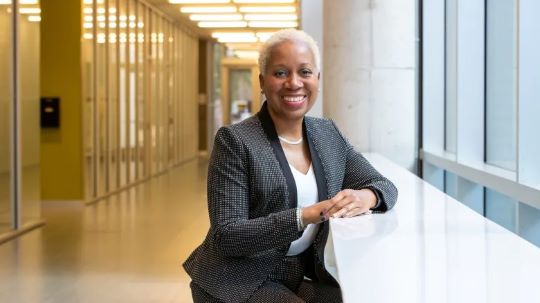
Juliet Daniel came to Canada from Barbados in 1983 to study medicine, but decided to pursue cancer research after a personal tragedy. She now studies cancers that disproportionately affect Black women and is pushing for more diversity in STEM fields. (McMaster University). Read more.
Request for Information (RFI): Input on Clinical Whole Genome Sequencing for Low and Middle Income Communities.
If you were going to offer clinical Whole Genome Sequencing to the undiagnosed the world over, what would you want to build into the program? Tell the Genetic Alliance in response to their request for information. Read more. Led by Sharon Terry CEO, who was a past speaker at the 2014 RFS Board Meeting and you can watch it here.
Marie Maynard Daly was a trailblazing biochemist, but her full story may be lost.
Marie Maynard Daly is known as the first African American woman to receive a Ph.D. in chemistry, earned in 1947 from Columbia University. What we know about Daly comes primarily from her record of scientific publications. While working with biochemists Alfred Mirsky and Vincent Allfrey at Rockefeller Institute in New York City in the early 1950s, Daly found direct experimental evidence that protein synthesis requires RNA. Read more.
Caltech names Laurie Leshin director of JPL.
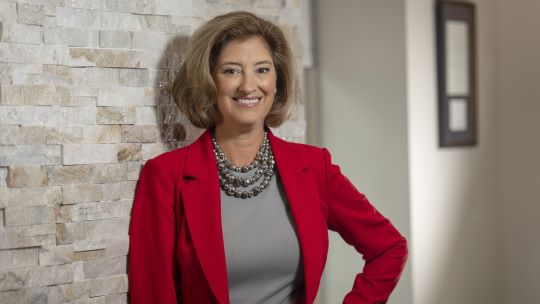
Laurie Leshin, president of Worcester Polytechnic Institute (WPI), has been appointed director of the Jet Propulsion Laboratory (JPL) and vice president of Caltech. Leshin will formally assume her position on May 16, 2022. The distinguished geochemist and space scientist brings more than 20 years of leadership experience in academic and government service to JPL. Read more. Photo credit: Photo Courtesy Worcester Polytechnic Institute.
Five women scholars awarded the Wolf Prize.
Congratulations to Pamela Ronald, Carolyn R. Bertozzi, Bonnie Bassler (an RFS board member), Anne L’Huillier, and Elizabeth Diller for receiving The Wolf Prize, awarded by the Wolf Foundation of Israel to outstanding scientists and artists from around the world for achievements in the interest of humankind and friendly relations amongst peoples. Read more.
Whitehead Institute director Ruth Lehmann receives the 2022 Gruber Genetics Prize.
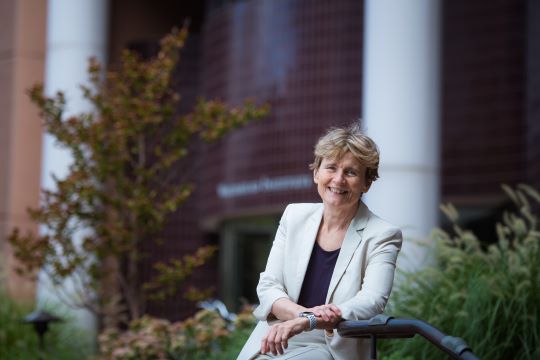
Whitehead Institute Director Ruth Lehmann (an RFS board member) has been awarded the 2022 Gruber Genetics Prize – one of the most prestigious recognitions in the field of genetics. Working primarily with the fruit fly Drosophila melanogaster, Lehmann made landmark discoveries regarding the composition, assembly and function of germplasm within the embryo. Her research has contributed to the first genetic framework for the specification of germ cell fate in any organism. Read more. Photo Credit: Gretchen Ertl/Whitehead Institute.
Dr. Julie Gerberding named Chief Executive Officer of the Foundation for the National Institutes of Health.
A leading voice for patient safety and empowerment, Dr. Gerberding has created programs addressing antimicrobial resistance, infection prevention, and medical error reduction in healthcare settings. Her distinguished career has earned her global recognition and myriad awards. Read more.
Funding opportunity: Women in Enterprising Science at the IGI.
The HS Chau Women in Enterprising Science Program (WIES) at the IGI is now accepting proposals from aspiring entrepreneurs seeking to translate genomics research into impactful solutions to real-world challenges and advance the representation of women founders in biotechnology. Read more.
2023 Vilcek Prizes for Creative Promise.
The Vilcek Foundation is now accepting applications for the 2023 Vilcek Prizes for Creative Promise. Three prizes of $50,000 each will be awarded in each of two categories: Biomedical Science and Music. The deadline to apply is June 10, 2022. Read more.
Meet The Awardees of the 2021 Eppendorf and Science Prize.
Congratulations to the winner of the Eppendorf and Science Prize for Neurobiology, Amber L. Alhadeff. Her research investigates gut-brain signaling and its contributions to feeding and other motivated behaviors. You can read her award winning research here. Read more.
New book celebrates trailblazing MIT physicist Mildred Dresselhaus.
In “Carbon Queen: The Remarkable Life of Nanoscience Pioneer Mildred Dresselhaus,” science writer Maia Weinstock describes how, with curiosity and drive, Dresselhaus defied expectations and forged a career as a pioneering scientist and engineer. Read more. Professor Dresselhaus was a true legend and we were honored to have her speak at our 2012 RFS Board meeting.
WHO scientist Mwele Malecela dies at 59.
Mwele Malecela, the director of the World Health Organization’s Department of Control of Neglected Tropical Diseases, died in Geneva on February 10, 2022, from complications relating to cancer, which she had been diagnosed with in 2019. She was 59. Read more.
Marianna Limas, Social Media Manager
Nilda Rivera, Partnership and Events Manager
|
|
|